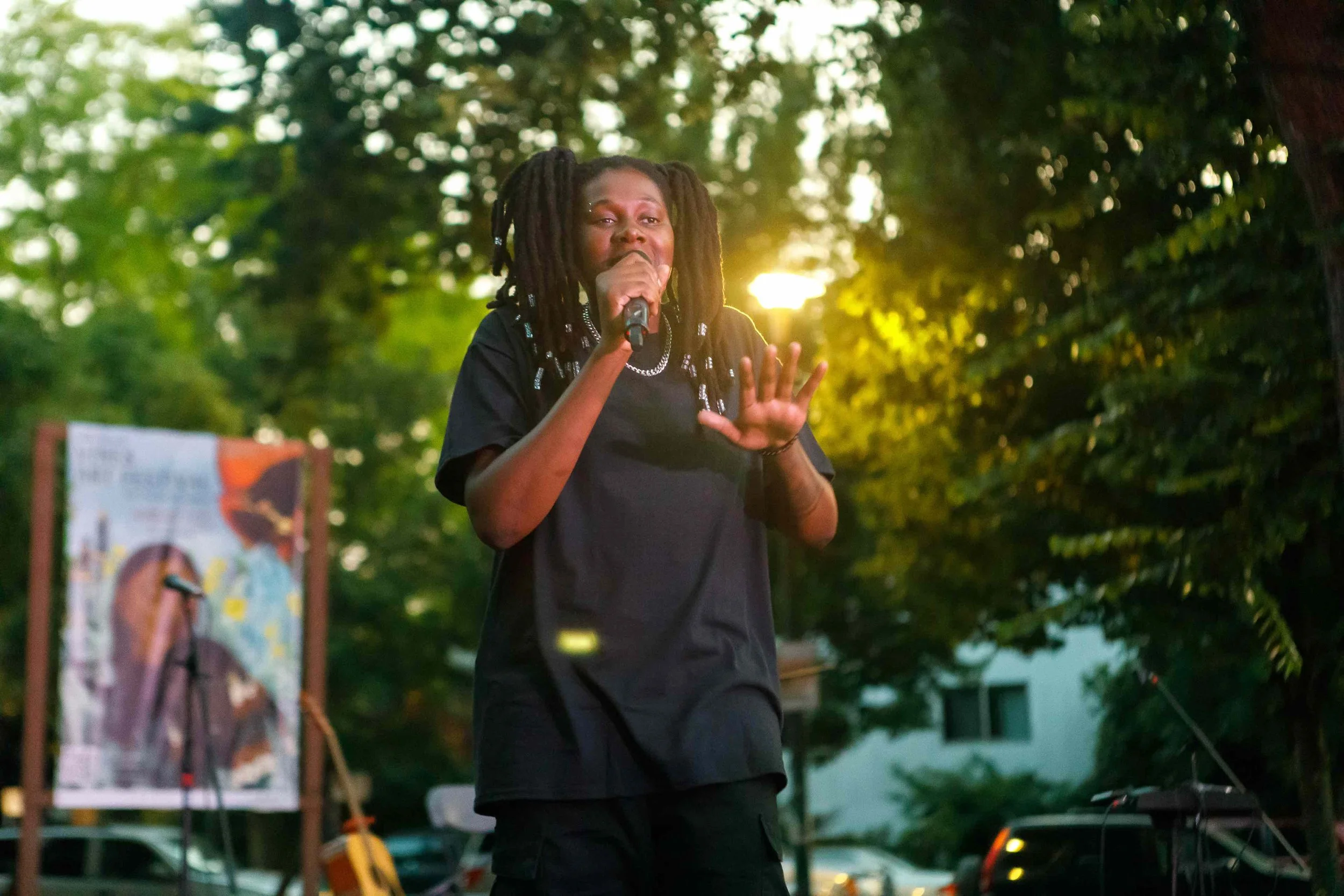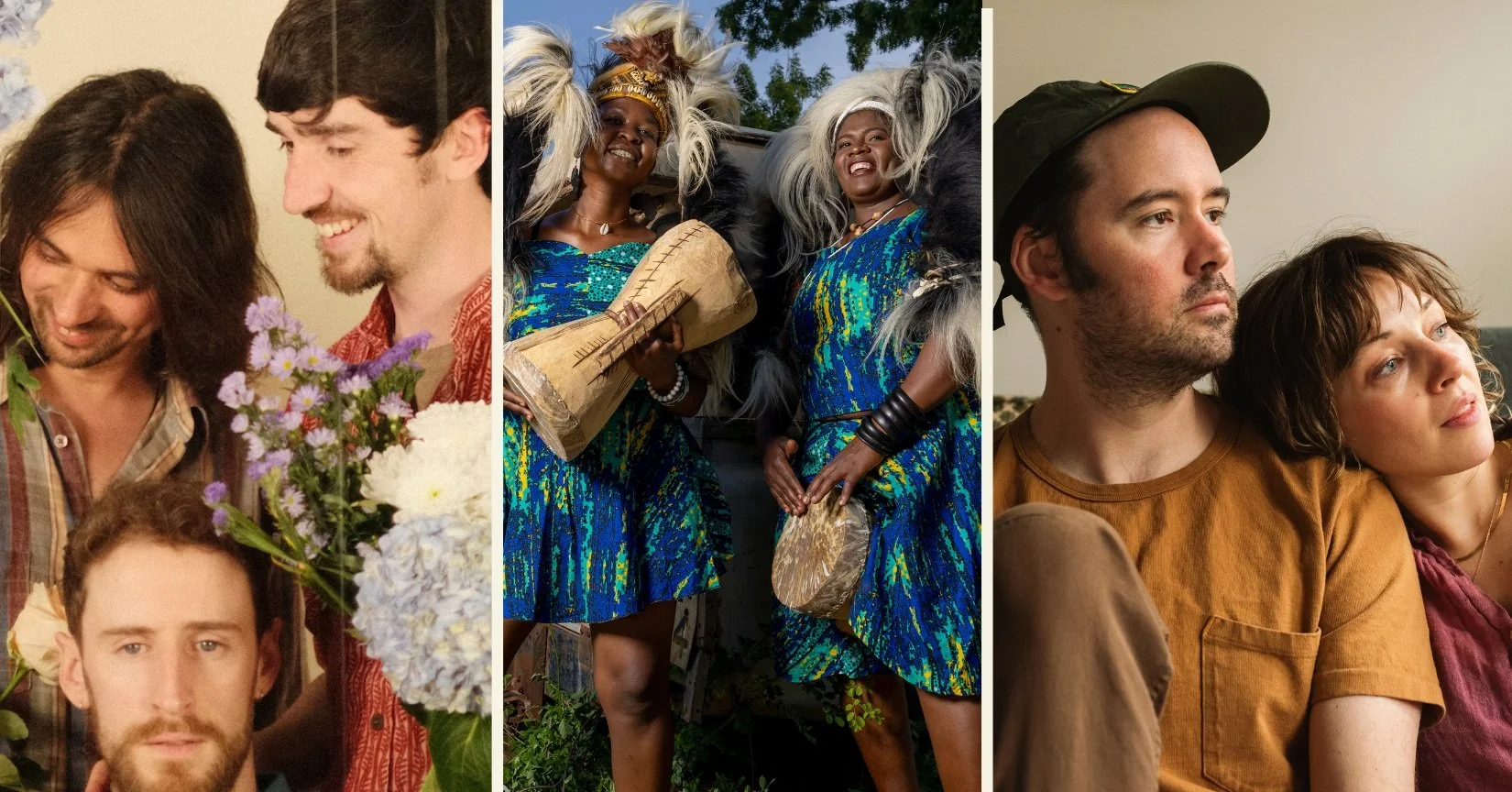Stir Q&A: Petunia of Petunia & the Vipers weighs in on his name, teaching himself how to play guitar, and Buster Keaton
Local musician says audiences can expect “original music filled with excitement, romance, and adventure” when the band plays the Kay Meek Arts Centre
Petunia & the Vipers.
Kay Meek Arts Centre presents Petunia & the Vipers on January 16 and 17
COUNTRY, WESTERN SWING, Mexicana, French cabaret, ragtime, rockabilly, jazz, punk, and folk: Petunia & the Vipers draw from all of these influences and then some. The local band is the project of Petunia the man, who is described on his website this way: “Imagine that David Lynch and Nick Cave had a hillbilly baby, that yodeled… or Tom Waits meets Elvis at Woody Guthrie’s hobo junction”. The group that puts its own twist on music spanning from the 1920s to the 1970s will be performing at Kay Meek Arts Centre on January 16 and 17. Stir caught up with Petunia to find out more.
For fear of asking the world's most clichéd question, we are dying to know: How did the names Petunia and the Vipers come about?
The name “Petunia” was forced upon me as it were, like in the song by Johnny Cash, “Boy Named Sue”. See 1920s appendix for a meaning of the word “viper”. [In the 1920s and 1930s, “viper” was Harlem slang for a pot smoker.]
How did music first enter your life?
I heard my first formative album, Looney Tunes, when I was 12, with such hits as “They’re Coming to Take Me Away”, “The Bird” and “Mule Skinner Blues”, to name a few. The next musicians that shaped me were on the albums that I heard snippets of at my older cousin’s house, who lived down the bumpy path and onto the next suburban housing project: Led Zeppelin, Queen, and David Bowie. I was young and my parents didn’t listen much to music, nor did anyone else in the family, except for my hip older cousin with the aforementioned albums. So these influences were unique and formative to me as a growing music listener.
Later, while hitchhiking around Europe, I sang three songs with my friend Irwin who played the guitar while we busked in Tel Aviv, Israel, and made 10 shekels. I learned the songs on the rooftop of the hostel where we met in Jaffa the same day and then took it to the streets. Shortly after that, I bought a guitar in London and taught myself how to play guitar from a Teach yourself to play the guitar book. I learned to fingerpick “Greensleeves”, but I never could get the hang of singing and playing at the same time, so I dropped playing the guitar altogether not long after that.
When did you realize that a career and life in music were for you?
A few years after dropping the guitar as a creative outlet (because I couldn’t play and sing at the same time), I met a lady named Sheila. She and I had been sleeping on couches in various homes, homeless as it were for a spell. By chance we were staying at one of her friends’ places who owned a Reader’s Digest Country and Western Songbook, the one with the barn sides as the cover. She opened it to a Hank Williams song (whom I had never heard or heard of). It may have been “Jambalaya” or “When You’re Tired Of Breaking Other Hearts”. She sang ’em both and handed me the guitar, imploring me to play it myself. I played the guitar in the same fashion that I had just seen her play, using the thumb to play alternating bass notes, while the rest of the fingers strummed. Same as I would later hear Maybelle Carter play, same as I also later saw Mexican folk musicians on the streets of Mexico City play. I had never seen or heard anyone play the guitar like that. It was so easy and made common sense to me. To my delight, I started singing along with Sheila, while playing the guitar! This was a massive musical breakthrough for me and altered the course of my life forever. Sheila had a suitcase full of country-music homemade cassette tapes, which I pored through once we got a place together. It wasn’t long before I had learned to play and sing 10 or so country classics culled from her suitcase collection. I took it to the birthing place of so many musicians, the streets of Toronto, where I found myself earning a living playing music for the next seven years.
In a world that loves to put things into tidy categories or silos, with so many different influences it’s impossible to narrowly define your band. How do you describe your sound and style?
For lack of a great three- or four-word descriptor that would conveniently sum it all up, I casually refer to our sound as “good music” when people ask me to. I realize that may sound snarky or flippant, or that I’m flaunting some sort of braggadocio. There is a lot going on on-stage, musically speaking, in many of our songs. There can be and often are lots of influences per each song in many cases. For example, a song of ours may include country, blues, and Roma all intertwined in the same song and yet sounds different as a whole than any of those three individual genres. I’m not consciously writing mixed-genre tunes to throw anyone off nor is it that I want to show how much I know. I know very little as far as the wide scope of world music goes. I have studied and learned and continue to learn as much as I can about what interests me, musically speaking, like all musicians do. I try not to censor myself at the outset while writing a song, whether that be lyrically or musically. I try to allow the song itself to dictate what is necessary through my own personal lens and emotional feeling at the time of writing.
What can audiences at Kay Meek expect and look forward to when you perform there?
Original music filled with excitement, romance, and adventure with a few classics thrown in. Strange, funny, and eclectic stories from our life on the road. Stories about the songs. Stage antics and theatricalism. Fun, fun, and fun.
If you could see any act in the world live, who would it be and why?
Excellent question. There are so many to choose from! I suppose we’d all like to have what we cannot have. In that light, I choose a dead artist. I choose to have seen Buster Keaton while he was playing the vaudeville circuit, as a teenager or early adult. He’s a hero of mine, and I have much to learn and have learned much from him. It would be very interesting to see his early acts, and what’s more to experience the atmosphere of the decaying vaudeville circuit at the time. The imagination runs wild. It might be a mistake to go back in time like that for fear of dispelling my current curiosity about the past. Curiosity is our friend and great ally, and it’s a shame to destroy any ounce of it. Cellphones be gone. ![]()
























